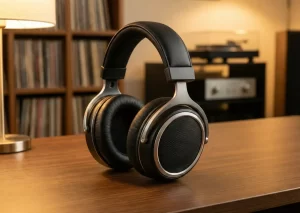Beatrice Rana’s newest recording may contain only two sonatas, but when it’s a pair of behemoths—Chopin’s B-flat minor and Beethoven’s Hammerklavier—additions become superfluous. This curious pairing speaks to her growth as a musician: while the Chopin is a product of her student days, the Hammerklavier resulted from her desire to delve deeper into Beethoven’s solo works during the lockdown.

Check offers of this album on Amazon.
The Chopin B-flat Piano Sonata has numerous accounts from the likes of Grigory Sokolov (live from Paris, 1992), Martha Argerich (1974), Yevgeny Kissin (2000), and Yuja Wang (2008). For me, the Sokolov and Kissin have always best evoked the pathos and rather rare show of bravado from Chopin. In light of this, I initially found Rana’s first movement light-handed with its understated opening and rustling, rather than galloping ostinato. But when the exposition’s repeat comes around, things start to make sense; Rana kicks the urgency and forwardness up a notch (although she doesn’t attain the level of convincing dramatic angst in Kissin’s recording). I was hoping she’d continue on this trend through the development, which on other pianists hands can instill sheer terror in the listener. I didn’t get the level of thunder I’d hoped for, though this could be attributed to the sound engineering: the treble sounds frustratingly pale against the more voluminous bass.
A scherzo by definition is intended to be humorous and light, but Chopin includes very little of these elements in the second movement (track 2). Rana’s repeated octaves are sharp and ferocious, but the brief major key touches (0’06”) do speak to the original character of the form. Here, the two-note phrases are elegant and almost coquettish. Rana excels, as she did in the preceding movement, at maximizing nuances and musicality in the middle lyrical sections. These sections, characterized by bel canto melodies and extended phrases, evoke the feeling of a nocturne. These moments also make evident her consideration beyond just a melody-and-accompaniment relationship; on more than one occasion, she beautifully brings out some hidden secondary lines.
Related Posts
- Review: Etudes Op. 25, 4 Scherzi – Beatrice Rana, Piano
- Review: Clara & Robert Schumann – Piano Concertos – Rana, Nézet-Séguin
- Review: Beethoven – Piano Sonatas Opp. 101 & 106 – Maurizio Pollini, Piano
As the meeting point of profundity and pathos, the Funeral March (track 3) is arguably the sonata’s ultimate test. Rana takes a measured pace compared to Argerich and Wang, but that leaves more room for artistic minutiae. The phrases may be compositionally static, but Rana finds ways to introduce tiny ebbs and flows that create a sense of deep introspection. I found this introverted account much more convincing than Wang’s rather dogged approach that plays more to the power of the climactic moments or Argerich’s, which feels a little business-like.
As for Beethoven’s Hammerklavier, Rana preempts pitfalls of harsh sounds and superficial machismo through thoughtful musical balance. The opening chords definitely could have benefited from better voicing (turn to Pierre Laurent Aimard’s version for this), but the space she creates between them via crisp staccatos maintains the drive without assaulting the ears. Intricate passages like the one at 1’00” delight with their buttery, mellow tone but transition seamlessly back into the commanding dotted rhythms. Rana has some fine voicing in the Adagio Sostenuto (track 7) that gives way to an intimate sound-space, though I find that Emil Gilels’ version captures the gravitas a hair better.
The introduction to the final movement is where there is some of the best dynamic shading from Rana: the soft dynamics are fantastic—at times so subtle that I had to crane my neck forward. But even so, the chords are harmonious and impeccably balanced. The amount of anticipation she creates is certainly fitting for the massive fugue that follows, which I’m happy to say makes for a solid finish as the best movement. She lays out Beethoven’s masterful counterpoint clearly through drier articulation but doesn’t hold back when a more symphonic sound is called for.
These sonatas command a hefty dose of power, but with so many records that already meet this requirement, it’s nice to hear a performance that highlights details of the music that might otherwise be overlooked. In this regard, Rana is quite successful. While these renditions may not be the most electric ones out there, listeners will certainly not walk away bereft of a musically insightful experience.

Beethoven – Piano Sonata No. 29 (“Hammerklavier”), Op. 106
Chopin – Piano Sonata No. 2 (“Funeral March”), Op. 35
Beatrice Rana – Piano
Warner Classics, CD 5054197897658

Check offers of this album on Amazon.
Included with an Apple Music Classical subscription:
Read more classical music reviews or visit The Classic Review Amazon store












